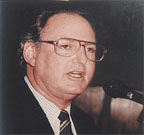More questions than answers surround the sacking of Dwayne Bravo as captain and the non-selection of Keiron Pollard and Darren Sammy from the West Indies’ One Day International (ODI) team for next month’s five ODIs in South Africa.
Equally so, an official explanation is still awaited for the earlier, mystifying omission of Ravi Rampaul from the provisional 30 for the forthcoming World Cup in Australia and New Zealand. Given the ways of the West Indies Cricket Board (WICB) we shouldn’t hold our breath waiting.
They all come in the confusing aftermath of the pull out of the ODI team on its tour of India, leaving one ODI, one Twenty20 and three Tests abandoned.

Rampaul’s exclusion was the first; somehow, it slipped under the radar.
Here is arguably the West Indies best ODI bowler over the past few years. Only Dwayne Bravo (199 in 164 matches) and Chris Gayle (158 in 255 ODIs) have more wickets that his 115 in 90 ODIs. His 5.08 runs-per-over rate is among the most economical in the team; his seven wickets in the three ODIs against Bangladesh in the West Indies’ most recent home series were gotten at 14.10 runs each and 3.81 runs an over.
There have been no reports since that he is injured or unfit. Yet he can’t make even a provisional squad of 30. Just what’s going on?
It is hard to credit the assumption that, like Bravo, Pollard and Sammy, he was penalized for being among the 15 in India.
On the team’s withdrawal from India, it is generally accepted that the West Indies Cricket Board (WICB), the West Indies Players Association (WIPA) and the players were equally culpable. Indeed, the Board of Control for Cricket in India (BCCI) pointed the finger of blame directly at the WICB and informed it that it would seek US$42 million in compensation for the losses caused.
The Task Force, appointed by the WICB itself to investigate the background to the fiasco and “render their opinion of the degree of culpability attributed to the WICB, to the WIPA and to the players”, found all three parties at fault for different reasons.
“We are of the view that the fundamental and overriding excuse for the players withdrawing their labour…was the attempted imposition of new contractural terms of employment on the players, negotiated between the Board and WIPA which the players saw for the first time after they got to India,” the report added.
It also placed “a significant proportion of the blame” on the players, “particularly its leaders”.
“Senior players in any overseas squad bear a great responsibility to set standards and create examples for the more junior players to follow,” it added, charging that the senior players failed on this point.
It made no recommendations of what action the WICB should take. This was not in its remit. All the same, it is obvious that Bravo, Sammy and Pollard, if not Rampaul, are paying the price as senior players.
All well and good but surely the WICB and the WIPA deserve similar treatment for their part in the fiasco; this was always a far-fetched notion. There was no way resignation of the WICB president and the chief executive officer and their WIPA equivalent would coincide with the demotion to the Twenty20 ranks of Bravo, Pollard and Sammy. These administrators answer to no one but themselves.
It is not that the shakeup announced on Saturday was unexpected.
From the start, Clive Lloyd, the new chairman of selectors who was with the team in India, was clear in his condemnation of the players’ actions.
“I spoke to them on every occasion, I told them what was the situation,” he said on the TV sports channel, Digicel Sportsmax. “They didn’t listen. I’m very disappointed they didn’t.
“It was just a dialogue that was needed, I told them to play and assess the situation (later),” he added. “I don’t think it was the intelligent thing to do. I am very disappointed.”
Lloyd’s stance was strongly supported by the Trinidad and Tobago Cricket Board (TTCB), home governing body of Bravo, Ramdin, Pollard and Rampaul. It charged the players with bringing “collective shame to the people of the Caribbean while also bringing the game into disrepute.”
One confusing side issue concerns those from India who keep their places. Ramdin remains Test captain and is in both ODI and Twenty20 squads; Sulieman Benn, Leon Johnson, Andre Russell, Jerome Taylor all survive, as does Holder. If it was a matter of seniority, as the Task Force report hints, Ramdin’s 62 Tests, 115 ODIs and 49 Twenty20s certainly places him in that category.
The timing of Jason Holder as Bravo’s successor also raises concerns.
Lloyd, the new chairman of selectors who elevated him to the ODI captaincy, described him as “one of the good, young players who we believe will form part of the long-term future of West Indies cricket”. He “has a very good cricketing brain and has the makings of a very good leader.”
I know Holder as a fellow member of his Barbados club, Wanderers, and fully agree with Lloyd’s assessment. But I’m apprehensive over the immense task immediately confronting him.
At 23, he becomes the youngest of all West Indies captains, in any form of the game. He is at the start of a career that Lloyd is confident will be long-term. His first experience in the post is to be five ODIs in South Africa (ranked No.3 to West Indies No.8 by the ICC) and the subsequent World Cup in Australia and New Zealand, the game’s largest, most intense globally followed limited-overs tournament.
The tense environment within the team that will inevitably follow the upheavals of the past two months compounds the issue.
The challenge will either move Holder forward into the successful leader Lloyd predicts or break him as it has done to others; he is the 11th ODI captain since Viv Richards was succeeded by Richie Richardson in 1992.





